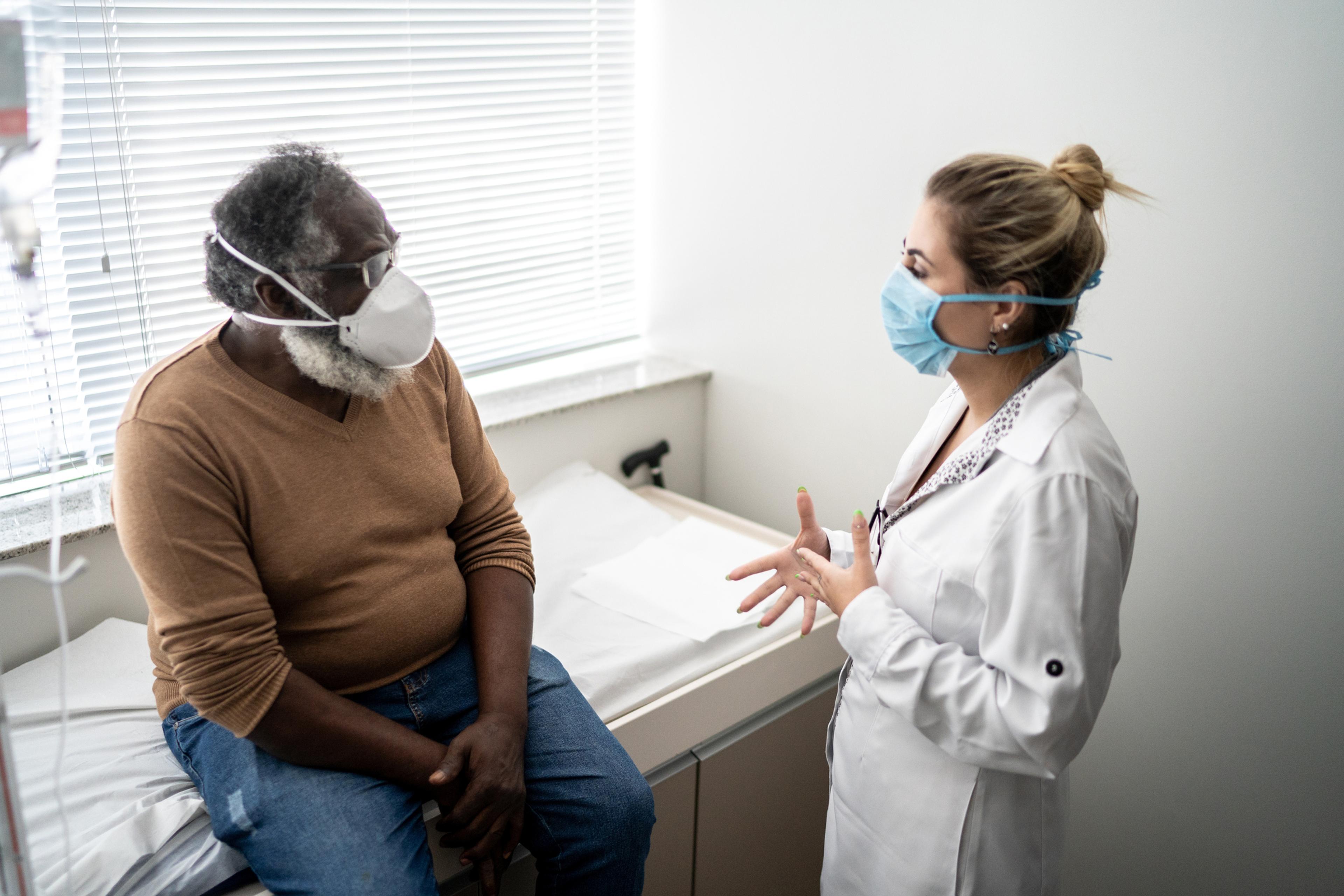10 Questions Seniors Should Ask Their Doctors
Jake Newby
| 4 min read

Your primary care provider shouldn’t be the only one asking questions during a checkup.
Visits with your provider allow you to express concerns and ask questions. Since issues begin to mount as we age, it’s particularly important to take charge of your health as a senior. Checkups are great opportunities to learn more about signs and symptoms you are feeling, the screenings you need, and topics like fall prevention and medication management.
Some topics are easy to forget in the moment. That’s why you should consider bringing this checklist with you on your next visit.
1. Is my blood pressure in the healthy range?
Elevated blood pressure can be an early indicator of cardiovascular disease, kidney disease and stroke. If your blood pressure is high, your doctor might recommend modifying your diet, physical activity, or medication.
2. What is my body mass index (BMI)?
While BMI numbers aren’t always perfect, they can be a useful tool in assessing risk for diabetes, hypertension, heart disease, and stroke.
3. Am I getting enough physical activity?
Regular exercise can prevent or delay many of the health problems that tend to come with age. Exercises that increase balance, coordination and muscle strength can aging adults continue to complete day to day activities without becoming dependent on others. The Centers for Disease Control and Prevention (CDC), provides a guideline on how much activity adults aged 65 or older should log. If you’re not sure where to start, talk to your doctor about how to get active.
4. Should any changes be made to my medications?
Almost 1 in 3 U.S. seniors visit at least five doctors per year, and it’s up to their primary care providers to coordinate that care. Managing medications is a major part of that coordination. Review the list of medications you are taking with your doctor, as well as dosages, supplements, and any over-the-counter medications you take regularly. Our health can improve, our bodies can change, and sometimes, new symptoms can arise because we take medications we no longer need. That’s why these reviews are important.
5. Is there anything concerning in my family health history?
Many diseases and chronic conditions are genetic. By exploring family health history with your doctor, you can learn about specific, preventative measures and tests that can help you avoid the same fate as your loved ones. Don’t forget to bring up any new illnesses that have been diagnosed recently within the family.
6. What can I do to prevent falls?
Good mobility is key toa safe, independent lifestyle. Ask what you can do to prevent falls and whether it’s safe to climb stairs. If you’ve fallen in the past or have had balance issues your doctor may suggest a vision or hearing test, or aids like grab bars, toilet chairs and walkers. Accidents happen but falls can be prevented.
7. Do I have bladder control issues?
While urinary incontinence – also known as overactive bladder – can happen to anyone, it is more common in older people, especially women. Often, incontinence can be controlled or even stopped altogether, but it’s an issue that’s rarely talked about and underdiagnosed. Your doctor needs to know there may be a concern, so they can provide early treatment and options for you. This can be key in avoiding complications down the road.
8. Are the signs or symptoms I’m experiencing normal?
Bodies are mysterious. We all develop body issues that can be deemed embarrassing, but that shouldn’t stop us from bringing them up with a doctor. In addition to incontinence, erectile issues, bowel movements, and menopause symptoms are among the most common topics that patients have a difficult time discussing.
9. Should I be worried about memory problems?
Simple forgetfulness may not be a sign of a deeper issue, but if you’ve experienced changes in memory, focus or mood, you should bring it up with your doctor. Your provider can determine if you have a medical condition that increases risk for developing Alzheimer’s disease or another form of dementia. They can also explain what tests can be performed to rule out those diseases as a diagnosis.
10. What annual screenings do you recommend for my age and gender?
Cancer screening test recommendations start to ramp up as you enter your 40s and 50s. Find out if it’s time to schedule a pap smear, colonoscopy, mammogram, lung cancer screening or prostate exam.
Learn more about Medicare Advantage Health and Well-Being programs and Blue 365 Discounts by visiting this resource page. You can also browse this list of upcoming Virtual Well-being webinars, which are designed to provide inspiration and motivation for your personal well-being journey.
Photo credit: Getty Images





